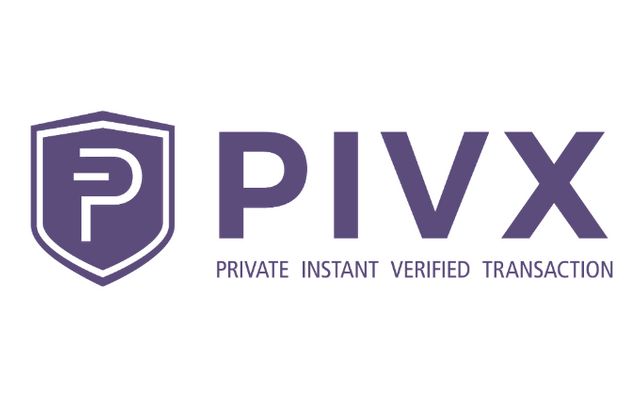
I think it’s time that we sat down and had a talk about choice. Life is full of them. We make them every day. Some choices we make are virtually invisible to us simply because we don’t pay attention to them. We here at PIVX believe that privacy is a right. But at the same time, it should also be a choice. No one should be forced to do things in private if they don’t want to, or if they can’t. There are even some circumstances where it is preferable to do things in public.
You’ve probably already guessed it by now, but this edition of PIVX Prose is all about choice. We believe giving our users the right to choose whether to use privacy features is far more valuable than it may seem at first glance.
In PIVX, there is Choice
Before we get into the details, let’s go over what exactly we’re talking about. PIVX is a privacy cryptocurrency – we all know that. It offers some of the best security and convenience features to our users.
What makes the privacy features in PIVX different from other privacy cryptocurrencies is that you have a choice. You are not required to use our privacy features (namely, zPIV) in order to enjoy the benefits and conveniences offered by PIVX. You can still stake, run a masternode, vote on and create your own budget proposals, and so on. Likewise, those who want to use zPIV to get the full benefits of our privacy features can do so easily.
Let’s compare PIVX to two other cryptocurrencies when it comes to choice – Bitcoin and Monero. I’m not going to pick on either of these, I’m just using them as examples since they are widely known and highly respected.
With Bitcoin, we don’t have a choice on whether to send a transaction privately or not. All we can do is rely on the general anonymous nature of cryptocurrency. Namely, the fact that send and receive addresses are not necessarily attached to any person in the way that a bank account is. Of course, techniques like blockchain analysis can potentially reveal the owner of any given address.
If you want to make private transactions on Bitcoin, you’ll likely need to rely on third-party services that could be highly untrustworthy or risky, such as so-called coin mixing services. These services claim to work by collecting inputs from many users, then combining them together and sending them back to their original owners – minus a processing fee. In short, when using Bitcoin, you don’t have much of a choice to be private.
Now let’s look at Monero. Monero is one of the most popular privacy cryptocurrencies on the market today. It uses a proof-of-work algorithm and relies on a privacy technology known as ring signatures. Monero offers a lot of benefits to those seeking privacy.
However, when using Monero, users do not have a choice to send transactions without privacy features. Instead, all transactions must be sent through private means. I’ll go more into reasons why that’s important in the next section. For now, just know that when using a privacy currency like Monero, you do not have the choice to make a non-private transaction.
Why does this matter?
We know that PIVX users have a choice when sending transactions. They can send regular PIV transactions that can be observed publicly on our blockchain, or they can use zPIV to transact privately.
But why does that matter? Why do we need a choice? If PIVX is a privacy-centric cryptocurrency, why not just make all transactions private? Why not just make things simple and keep all transactions private by default? To answer these questions, we need to consider why someone would want to send a transaction anonymously, and why they wouldn’t. Let’s look at the reasons for anonymity first.
The PIVX team believes that privacy should be a right, not a privilege. For those that hold similar views, using privacy features is simply the right thing to do. No matter what it is you’re doing with your funds, that information should be yours and yours alone. Whether you’re buying something innocuous, something suspicious, or something embarrassing, no one else should be able to make the decision for you as to whether that information should be shared.
Another serious reason for privacy is protection for those holding controversial viewpoints and opinions. In recent years, Palmer Lucky – one of the creators of the Oculus Rift VR system, was allegedly fired or forced into resigning from Facebook due to a political contribution he made before he was a part of the company.
Whether or not one agrees with Lucky’s political leanings is irrelevant. If you want to support a political idea, group, or movement, you should be free to do so without fear of retribution.
You Don’t Want to be Private?
Why would someone choose to not be private? If using zPIV is quick, easy, and cheap – why not just use it all the time? To answer this question, we need to go over a few hypotheticals. One potential reason is if someone needs to send a transaction that must later be verified by an outside party (I.e. not the sender or receiver), then it must be done without privacy features.
Let’s say for example that in the future, lawsuits can be paid through cryptocurrency. In a hypothetical lawsuit, a consumer has won a case and a business owes them the fiat currency equivalent of 500 PIV. The business can pay the consumer using a non-private transaction and provide the transaction details to the court for later verification. If the transaction was sent using privacy features, it would be impossible to prove that the funds received by the consumer did, in fact, come from the business, and so the business could still be on the hook for payment.
This is just a simple example, but there are countless circumstances where a transaction that can be verified by anyone is preferable to one that is anonymized. Dozens of more examples can be found in the business world were accountability and auditability are crucial and antithetical to privacy features.
This next potential reason is a little tricky but bear with me. There have been murmurs that perhaps in the future, privacy cryptocurrencies could be made illegal in some countries. Perhaps it’s for fear of money laundering, or funding terrorism, or something else equally outlandish. If this dark prediction ever comes to pass, cryptocurrencies that always require privacy features will become illegal. Conversely, cryptocurrencies that merely offer the opportunity to use privacy features are far more likely to be able to escape this classification.
No Compromises, Just Solutions
We’ve been asked before – if we are a privacy cryptocurrency, isn’t offering a non-private means of transacting a compromise? Does this mean we are giving our users a half-baked solution that is inherently incomplete?
No. The answer is as simple as that. Our privacy features are top-notch, and our tech is always on the bleeding edge of innovation and invention. There are no compromises in our privacy features.
PIVX is a privacy cryptocurrency, but our goals are not just providing privacy alone. Instead, our goals are about promoting freedom. We believe that freedom is made out of many components. Two of the most important components of freedom are privacy and choice.
We don’t compromise. Our manifesto is clear – freedom through privacy, freedom through choice.
All that Matters is Choice
For those that are hard-core privacy advocates, they will likely not choose to deal in PIV directly. They are welcome to take full advantage of our incredible zPIV privacy features and remain as anonymous as their hearts desires. On the other side of the spectrum, those that need to make public transactions are free to do so on our network, without the need to exchange PIV for bitcoin just so that they can make publicly verifiable transactions.
Not all privacy currencies offer this type of choice. Although there is a learning curve to understanding the difference between PIV, zPIV, and how to use them, we think it’s worth it. A big part of freedom is not just the right to be private. We think it’s just as important for us to be able to choose not to be private when we wish to do so. https://pivx.org/pivx-prose-freedom-or-privacy-why-not-both/ We believe that privacy matters. We believe that privacy is a right. But let’s never forget, we believe everyone should have the freedom to choose.


